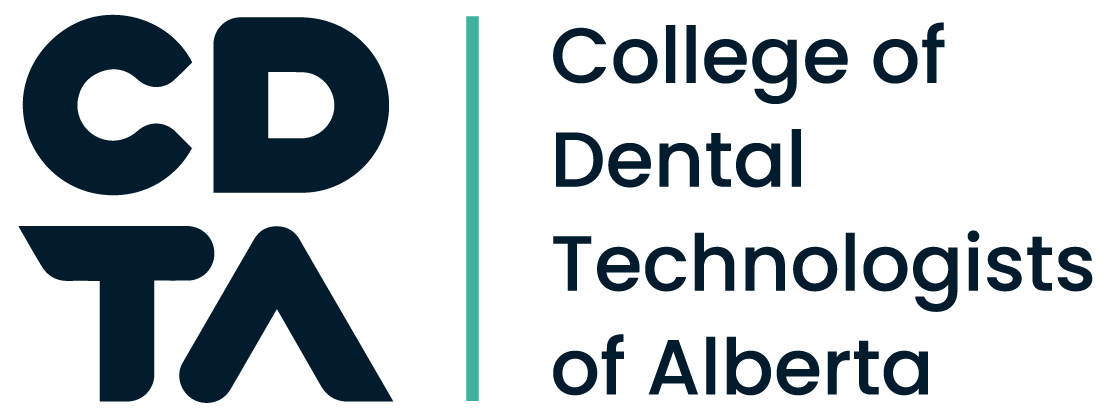Substantial Equivalence (Internationally Trained) Applicants
Substantial Equivalence (Internationally Trained) Applicants
Eligibility
You must apply for registration under this pathway if you are a dental technologist or dental technician whose dental technology education program was located outside of Canada.
Under section 7 of the Dental Technologists Profession Regulation, the College will need to determine substantial equivalence of your qualifications.
To assist with determining whether an applicant’s qualifications and competencies are substantially equivalent to graduates of an approved Canadian Program, the Registrar or Registration Committee may require the applicant to undergo any examination, testing, or assessment activity, and may direct the applicant to undergo any education or training activities that are considered necessary for the applicant to be registered. The cost of any assessment, testing, and any additional education or training activities is the responsibility of the applicant.
Under the Regulation, the College of Dental Technologists of Alberta must approve a registration examination as one of the requirements leading to registration with the College. To meet this requirement, the College requires new applicants to complete the Dental Technology Entry-to-Practice Assessment (DTETPA) administered by the Canadian Alliance of Dental Technology Regulators (CADTR). Once applicants have successfully completed the DTETPA, they are eligible to apply for a Practice Permit without conditions.
Find out more information about the DTETPA and CADTR here:
https://cadtr-acortd.com
https://www.youtube.com/watch?v=A6JZE4ro8qQ
A solid and legally defensible registration examination has many processes and requirements and is best overseen by a psychometrician. For this purpose, the College has contracted the exam administration to the Canadian Alliance of Dental Technology Regulators who work with a psychometric firm, with considerable experience in the development and administration of professional entry-to-practice assessments. This ensures a fair and transparent process for exam candidates. The psychometric services the development of the examination questions; stations; policies; procedures; exam construction; setting the minimum pass score for the examination’s components; determining when a candidate has aptly demonstrated within the examination process if they are successful or unsuccessful; and ongoing quality assurance with the examination questions and content.
In order to apply for registration as a regulated member, an individual must have a minimum of 1200 practice hours within the immediately preceding 5 years or have graduated from their educational program (dental technology) within the immediately preceding 5 years.
Applicants may be eligible for a temporary-conditional practice permit, pending successful completion of the Dental Technology Entry-to-Practice Assessment. These individuals must have a complete application, approved by the Registrar or the Registration Committee. Temporary-conditional members are required to work under the direct supervision of another regulated health professional. Information regarding your work environment and your regulated supervisor, and a signed supervisory agreement are required.
Step 1: Apply to write the National Dental Technology Entry to Practice Assessment (DTETPA) administered by the Canadian Alliance of Dental Technology Regulators (CADTR).
Find out more information about the DTETPA and CADTR here:
https://cadtr-acortd.com
Step 2: Apply for Registration with the College of Dental Technologists of Alberta before you begin working as a dental technologist or dental technician. You will need to provide all the documents listed on the application checklist for substantial equivalence applicants.
Step 3: Complete the Dental Technology Entry to Practice Assessment
Step 4: Provide the CDTA with your DTETPA results to have conditions removed from your practice permit.
For a list of required information and documentation, consult the application checklist for substantial equivalence applicants.
Section 28 of the Health Professions Act requires that an applicant be sufficiently proficient in English to be able to engage safely and competently in the practice of dental technology. All dental technologists and dental technicians in Alberta must be able to communicate clearly with the clients and patients in English.
• Applicants whose primary language is not English and/or whose dental technology program of study was conducted in a language other than English will be required to provide proof of English language competence.
• Applicants may be exempt from this policy when an applicant is currently registered in a jurisdiction where there is an equivalent English proficiency requirement.
• Official English language scores must be sent directly from the testing service to the College.
• Examination scores will be accepted only if achieved within the most recent two (2) years.
• Applicants may choose to complete either TOEFL iBT or IELTS.
English Language Tests Accepted by the CDTA and Accepted Achievement Level for Each
